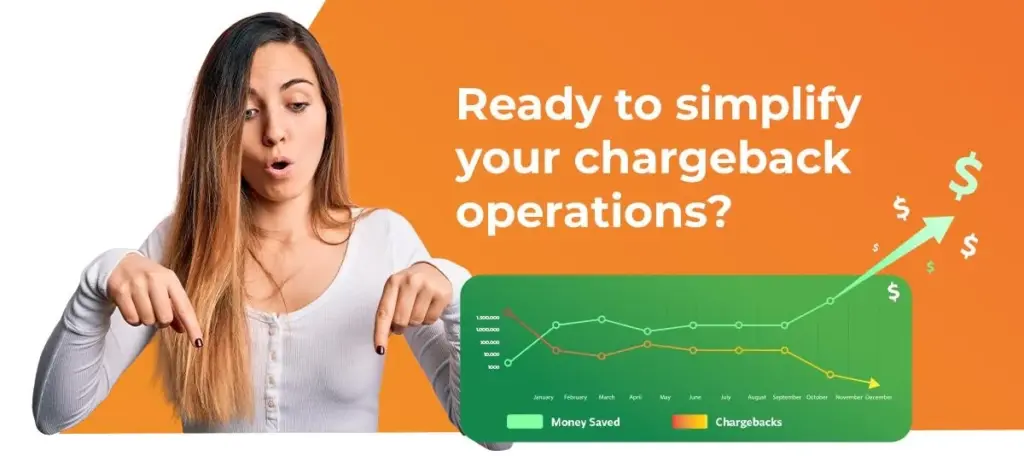How and Why Visa’s VMPI Is Now Called Order Insight

When Visa launched their Visa Claims Resolution Initiative, or “VCR,” the launch came with a bold promise to simplify debit and credit card transaction disputes. VCR was then followed by the release of the Visa Merchant Purchase Inquiry (VMPI) – an API platform to implement the VCR by resolving disputes and tracking fraudulent activity. Right in the middle of VMPI’s big marketing debut, Visa acquired Verifi. Verifi was better suited to manage key components of the VMPI so it morphed into Verifi’s Order Insight™. This created quite a bit of confusion among merchants, so let’s fix that…
WHAT IS VISA’S VMPI?
VMPI generated a lot of buzz not only from its features, but its launch was also a signal that Visa was working to reform the dispute process. Merchants especially were excited by VMPI‘s ability to send compelling evidence in real time to settle transaction inquiries between cardholders and their issuing bank. The rationale being if banks had all the information up front that tied cardholders to their purchases, this would deflect a lot of friendly fraud disputes. But that was actually just one module in a suite of proposed “Call Types” that were only partially rolled out when the Verifi acquisition went down.
Call Type One
Real-time compelling evidence was set as VMPI Call Type One. Prior to VMPI, if a cardholder didn’t recognize a transaction from its statement descriptor, they would take their inquiry to their card issuer, and issuers simply initiated a chargeback. This system was unfair to merchants and rife with abuse. Type One sent deeper transaction details to the cardholder’s online statement: delivery confirmations, merchant contacts, and product descriptions.
If the cardholder is attempting chargeback fraud, the issuer could now see information tying that cardholder to the purchase: device IDs, IP addresses, and customer support interactions. Cardholders could also see this data on their online statements to better recognize transactions. Both issuers and cardholders would have the information they required, and disputes could be deflected.
Call Types Two and Three
Call Types Two and Three split conventional dispute notifications into two parts. Leveraging their TC40 fraud data, Visa classified Type Two as “fraud notices”, or transactions that were flagged as confirmed fraud. By isolating this type of notice, VMPI could provide merchants with a Rapid Dispute Resolution™. RDR prevents both chargebacks and alerts with immediate automated refunds without routing through the payment gateway. Type Three “dispute notices” categorized other disputes – merchant error, processing or authorization failures and other issues that require further scrutiny or action.
As you can imagine, merchants were thrilled with the promise of VMPI and scrambled to get on board. It was the right product, at the right time, on the right scale. Fraud, friendly fraud, and cardholder disputes had been on the rise for some time, and now the industry leader in payment processing was stepping in to do something about it. However, Visa was relatively new to dispute management. While they had always issued guidance on disputes, Visa was now wading into the weeds of dispute management.
VERIFI INTRODUCES ORDER INSIGHT
While VMPI was being rolled out in 2017, Verifi introduced its own version of real-time dispute prevention called Order Insight. OI did the exact same thing as VMPI Call Type One, but OI was a simpler, more elegant solution. Verifi had been in the dispute management space for a decade at this point, and their experience gave OI and CDRN some advantages over VMPI. Most merchants with chargeback issues were already resolving alerts with Verifi’s Cardholder Dispute Resolution Network™ (CDRN). The challenge for Verifi was getting issuers to adopt their platform.
VMPI GETS ‘VERIFI-ED’
The stars aligned for an acquisition, and Visa bought Verifi in 2019. Visa gained an established player to deflect and resolve disputes in Verifi. Verifi would get more issuers on board running on Visa rails.
What happened next is perhaps a testament to how effective Verifi, CDRN, and Order Insight truly are. Visa discontinued its Call Types model and delegated VMPI capabilities to Verifi, despite being mid-stream promoting VMPI. Call Type One was rolled into Order Insight and was branded as the “Visa Resolve” module. Call Types Two and Three merged into a hybrid of Visa TC40 data and Verifi alert notifications and was branded as the “Visa Inform” module. Both companies’ capabilities to refund these alerts were merged under “Visa Resolve,” including Visa’s Rapid Dispute Resolution and Verifi’s CDRN. These modules are now supported by Verifi, running on Visa Rails.
As ideal as this marriage was, it has generated some friction for merchants. Everyone got hyped on VMPI; and then it was gone (we called it, too). Merchants that integrated with VMPI now have to accommodate Verifi APIs. Verifi clients are also experiencing development pains as those products are merged and scaled to serve the entire Visa Network.
Whether they were using VMPI, Order Insight, CDRN, or none of the above, merchants have one thing in common: they just want to sell their products and not get sucked into the rabbit hole of disputes, branding, and morphing APIs.
CHARGEBACKHELP KEEPS MERCHANTS CURRENT
The current Visa dispute management network requires extensive integrations with merchant processing in order for merchants to benefit from these changes, and those integrations are evolving. Simplicity may be Visa’s destination, but the journey is currently creating a lot of confusion among merchants. ChargebackHelp is here to clear all this up.
ChargebackHelp is in the business of following these complex developments in the payments industry. Our dispute management portal ChargebackHelp Plus was created to manage the ever-evolving products that help merchants fight fraud and chargebacks. Regardless of acquisitions, branding, or more direct challenges like security vulnerabilities in these new platforms, CBH+ seamlessly manages the integrations and maintenance so merchants can focus on their core business.
ChargebackHelp provides custom chargeback prevention solutions that deflect disputes, resolve alerts, and recover merchant revenue lost to fraud. Our streamlined processes save our merchants from lost revenue, costly fees, penalties, and the risk of losing their credit card processing. Contact us for a free chargeback analysis and see what ChargebackHelp can do for you!








